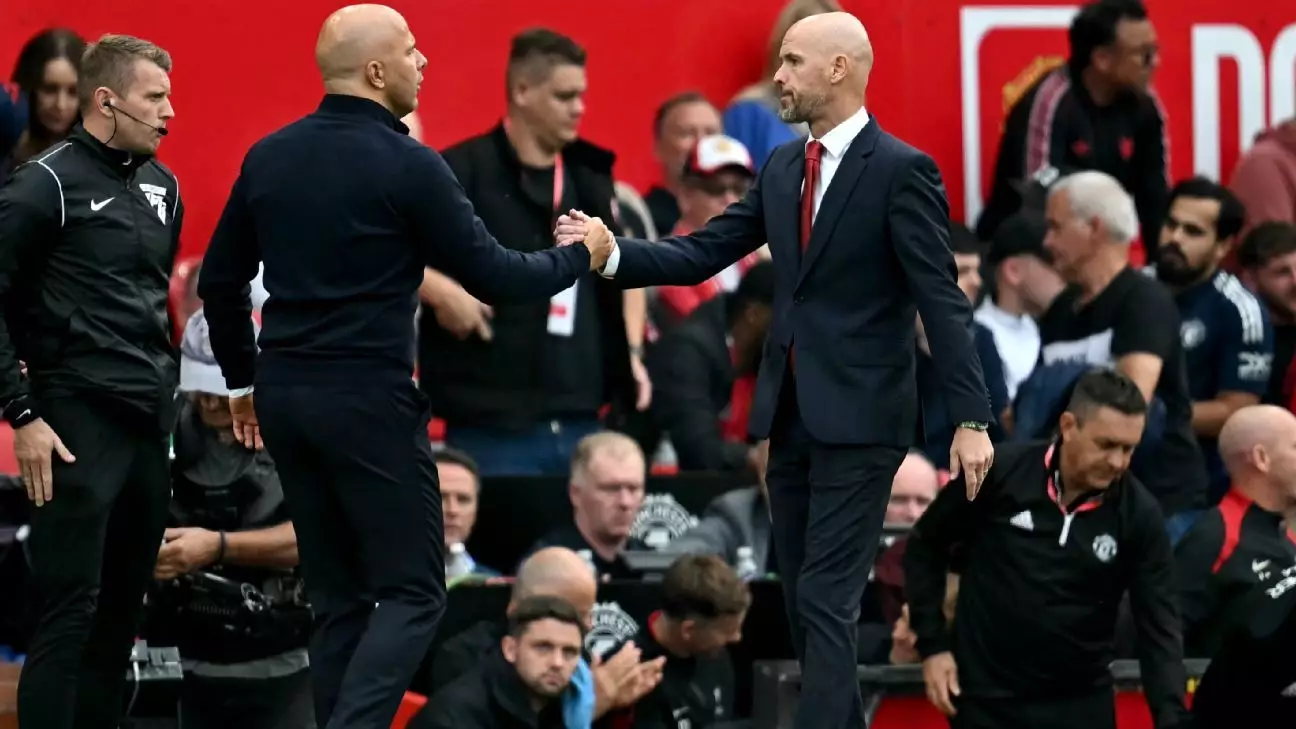The recent dismissal of Erik ten Hag from his role as Manchester United manager has raised significant discussion among football analysts, players, and fellow coaches within the Premier League. Ten Hag’s exit, following a disappointing defeat to West Ham, underscores the relentless pressures faced by modern football managers—a trend that has only intensified in today’s competitive climate. Amid the shockwaves of this decision, his peers have voiced their sympathy for him, recognizing not just the loss of his position but the emotional toll such a dismissal can take.
Upon hearing about Ten Hag’s departure, notable figures in the Premier League expressed their condolences. Arne Slot, the coach of Liverpool, articulated the collective disappointment felt among Dutch managers and fans alike. He emphasized the personal side of the profession, recognizing Ten Hag’s dedication and hard work at United. The emotional weight of such an event extends beyond mere professional ramifications; it speaks to the very human aspect of being a coach. This solidarity amongst managers reveals an understanding of the unique pressures they face, where their livelihoods are contingent on performance metrics often beyond their control.
In press conferences, sentiments of sadness were echoed by other coaches, including Pep Guardiola and Mikel Arteta, who underscored the harsh reality of results-oriented employment in football. The sentiment that job security is tenuous for managers highlights a systemic issue within the sport—coaches can pour their hearts and souls into a club yet still face dismissal following a series of unfavorable results. Guardiola remarked on the distinctiveness of managerial roles, noting that professionals in other fields—such as education or architecture—do not face the same level of scrutiny and job loss.
The mounting pressure for immediate results creates an unforgiving environment where decisions are often made swiftly and without room for contemplation. Football is a business heavily reliant on data-driven analyses and instant gratification from fans and owners alike. Ten Hag’s sacking serves as a potent reminder that, irrespective of past successes, including his achievements with Ajax and his success at United in cup competitions, any slump in performance can precipitate a manager’s downfall.
In reflecting upon Ten Hag’s tenure, it is crucial to consider the broader context within which Manchester United operates—a club persistently striving to reclaim its former glories amidst ever-growing expectations. As noted by Arteta, Ten Hag had made notable contributions to the club, including winning silverware and initiating structural changes in the team. However, with such identified efforts comes an increased expectation for sustained success and progression.
The managerial carousel in football continues to spin, and United’s immediate search for a replacement has already started, with reports linking them to Sporting CP’s Rúben Amorim. The fact that negotiations for Amorim’s release clause are underway mere days after Ten Hag’s exit epitomizes the cutthroat nature of top-tier football. Succession planning often lacks consideration for the emotional ramifications that accompany a manager’s dismissal, illustrating that for club owners and executives, the focus remains on performance and tactical alignment.
As club executives seek new leaders, the discourse surrounding managerial treatment and the potential for redemption becomes increasingly relevant. Football’s culture could benefit from cultivating patience and understanding, focusing on long-term goals rather than fleeting results.
Ultimately, Ten Hag’s story should serve as a cautionary tale, urging clubs, fans, and stakeholders to appreciate the efforts of managers while recognizing the complex intricacies of their roles. As many in the industry have expressed, these decisions impact real lives and families—a reminder that behind every manager is a person who shares in the hopes and disappointments of their club’s journey.

